
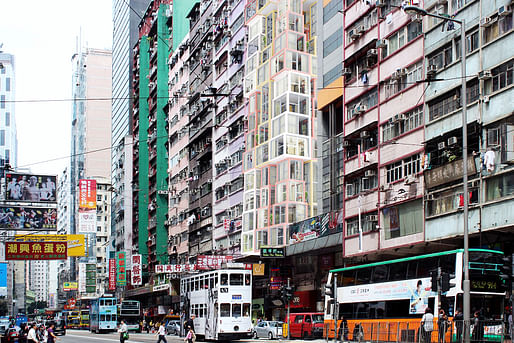
How can the multi-housing typology be reinvented, especially in a highly dense urban location like Hong Kong? What modular, vertical-living solutions are out there when housing shortages, increasing rent, and ever-present economic disparity are rampant in cities worldwide? These are some of the questions participants had to address in the Hong Kong Pixel Homes competition, organized by Bee Breeders.
The competition concluded with three top prize winners — including Kwong Von Glinow who won the New York Affordable Housing Challenge; a Student Award and a Green Award winner, and six honorable mentions. Scroll down to see some of the winning entries.
1st prize: “Towers within a Tower”
Project authors: Kwong Von Glinow Design Office in collaboration with Kevin Lamyuktseung | United States
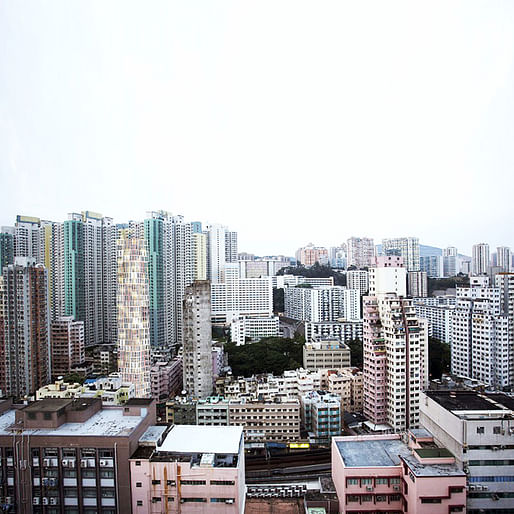
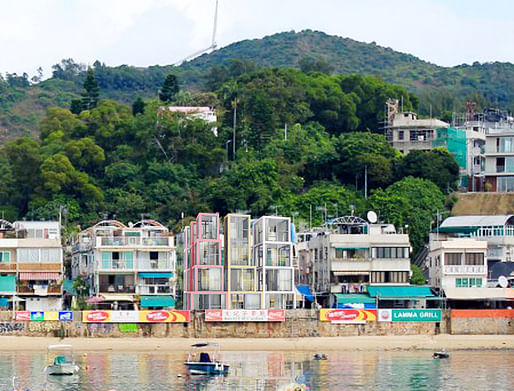
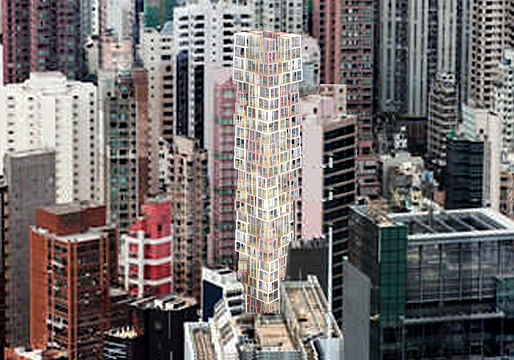
Jury commentary: “The first place proposal radically re-imagines the notion of vertical living, translating from the building scale to the individual unit typology. Rather than stack units floor to floor, each unit is layered and aggregated vertically, establishing a repetitive module, for adaptation to various sites in Hong Kong. By re-thinking the typical rental unit, the project re-postulates common urban housing, often internalized and tightly clustered per floor, left with little daylighting opportunity or exterior accessibility. As the unit progresses upward from floor to floor, the building envelope steps to maximize exterior exposure and increase availability of natural light.
Organized in a nine square grid, the project takes full advantage of the perimeter, locating the public circulation at the core. Once aggregated, the receding volumes thread together varied perforations of outdoor space, providing both circulation and courtyard. The woven circulation offers opportunity for the chance encounter and shared narrative, re-imagining the idea of the street and neighborhood. The vertical stacking of individual units develops a new tower paradigm, taking advantage of amenities more commonly provided in the sprawling expanse of single family neighborhoods, while engaging the end user in direct dialogue with the scale of the city.”
2nd prize: Vertical Village
Project authors: François Chantier, Maria Fernandez | France
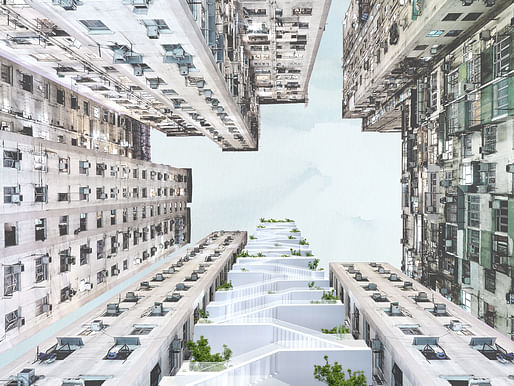
Jury commentary: “The second place proposal was chosen for its reformulation of a domestic typology as a solution for the housing crisis in Hong Kong. Composed of a 100 square meter prefabricated housing units, the aggregation of modules creates a vertical village that rethinks domestic space at the scale of the city. Through the use of the vernacular form of the home - the gable - the sectional variation of each housing module produces a rich spatial variety amongst the units - creating terraces, pocket gardens, and lofts each with a unique lighting condition. The proposal seeks to reclaim the scale of the city by inserting these vertical neighborhoods into the fabric of Hong Kong, interconnected by exterior passageways, shared spaces, and common gardens for collective activities such as worship, markets, and leisure.
The robust morphology allows the project to adapt to the various sites, scales, and densities of Hong Kong. The simplified post-and-beam construction with prefabricated housing units inserted into the structural armature creates a low-cost and flexible system of construction. Paradoxically, although the units appear to be homes, their internal morphology radically alters typical domestic space from a series of rooms into an adaptable set of flexible functions and zones. The inhabitants can reappropriate and change the use of each space, enabled by the generosity of the layouts. The spaces between each prefabricated unit allows for light into the spaces and offer an opportunity for vegetation to occupy these interstitial voids.”
3rd prize + Student Award: Upside - Down Mechine
Project authors: Yukang Yang, Jingwen Cui - Beijing University of Technology | China
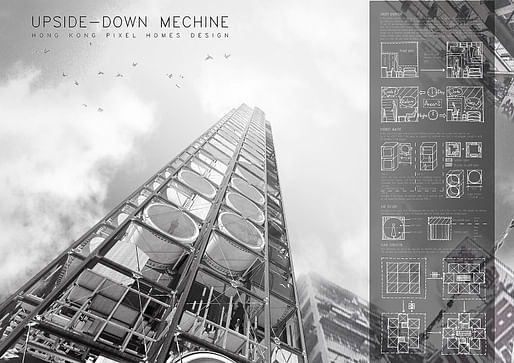
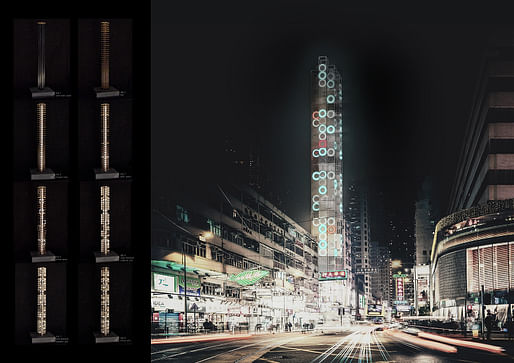
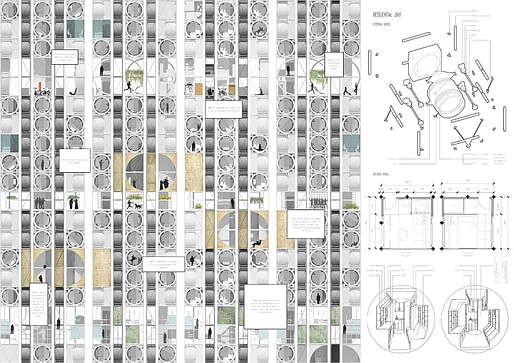
Jury commentary: “The third place proposal resuscitates the legacy of the Metabolist capsule tower, reimagining the micro-unit dwelling as a mechanized zone of spatial modification and efficiency while producing a marketable icon for the skyline of Hong Kong. The dwelling space occupies cylindrical drums set into a rigid structural frame, stackable and deployable in multiple height configurations. Through the mechanical rotation of the dwelling cylinder, the topology of the unit deprioritizes the ground as the space of primacy, allowing the tenant to gain access to different programmatic functions deployed on both the ground and ceiling. Circulation and bathroom facilities maintain a fixed position in the core, while the machinic dwelling space is constantly mutable, rhythmically rotating, and contorting to fit the needs of the body.
The inhabitant views the city through the porthole of each cylinder while the city observes the inhabitant by means of a ring of neon illumination around the cylinder’s edge: a lurid beacon of color-coded activity within. The ultimate success of the proposal is its embedded critique of the dystopian future of the technological solution to the crisis of housing in the urban environment. The project offers less of a solution than an exacerbation of the already problematic tendencies of our urban domestic culture: the impossibility of privacy through digital media in an ever-shrinking dwelling footprint. The optimism of the proposal, however, relies on the idea that this existence has the potential to be fun, if we find comfort in relaying the activity of the private domestic sphere in a theater of spectacle for the public realm.”
Green Prize: Hong Kong Pixel Homes - Lantern of Lives
Project authors: Danaiporn Pongamornprom, Thongchai Wongsrisuppakul, Veeramon Suwannasang | Thailand
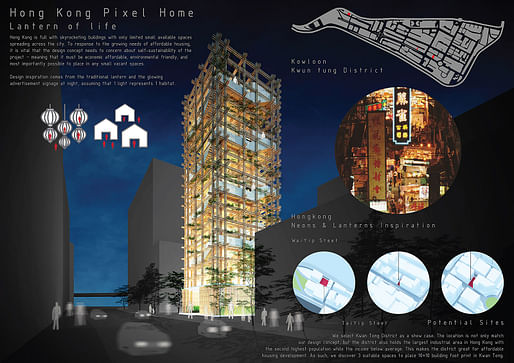
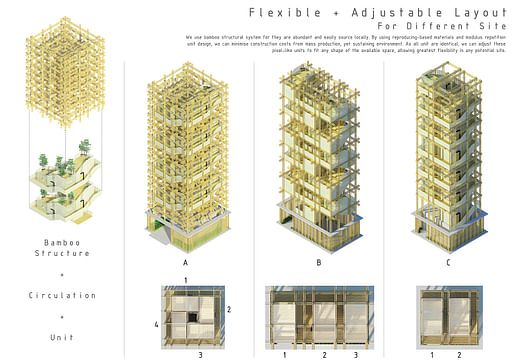
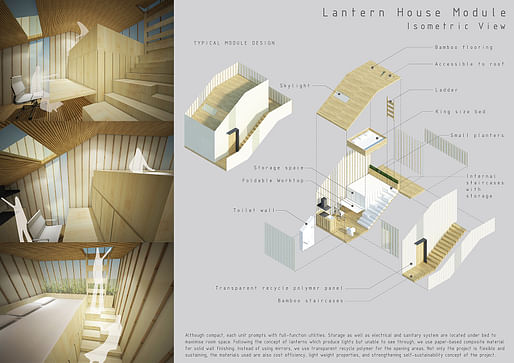
More project images in the gallery below. You can also check out more entries here.
Images courtesy of Bee Breeders.
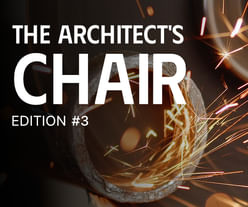
The Architect's Chair / Edition #3
Register by Wed, Jan 15, 2025
Submit by Tue, Feb 18, 2025
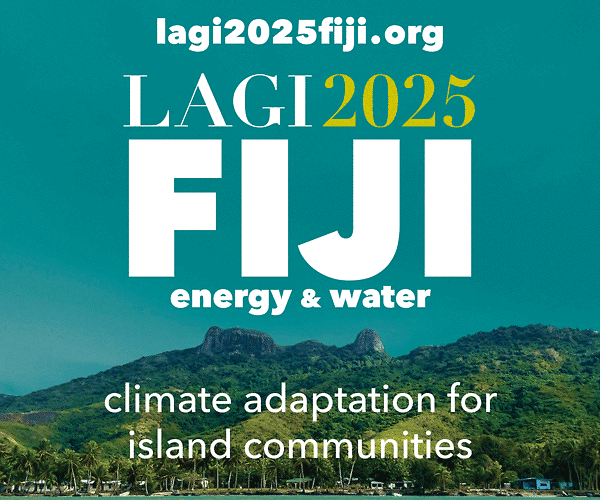
Land Art Generator Initiative 2025 Fiji: Climate Resilience for Island Communities
Register/Submit by Mon, May 5, 2025

Kinderspace: Architecture for Children's Development #2
Register by Thu, Jan 16, 2025
Submit by Mon, Jun 16, 2025
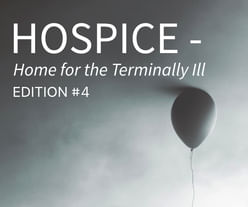
Hospice - Home for Terminally Ill #4
Register by Wed, Jan 15, 2025
Submit by Mon, Jun 16, 2025
No Comments